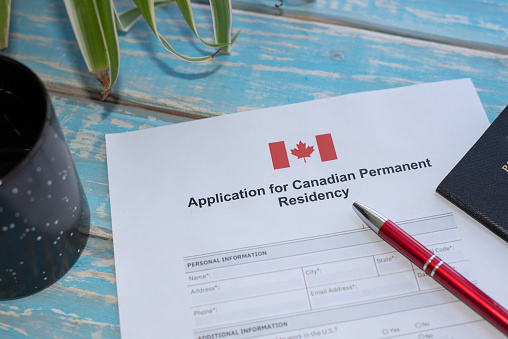IRCC elaborates on the Six Immigration Pathways’ Eligibility criteria

The IRCC (Immigration, Refugees and Citizenship Canada) has recently instigated a total of six novel PR (permanent residency) programs as a part of its immigration propaganda and proceeded to reveal detailed information for more audience clarity towards these pathways on the 26th of May, 2021. These programs were launched keeping in mind the International graduates and essential workers quite early on during the month, i.e., on the 6th of May.
Within the span of a single day, a quote of 40,000 applications was achieved by the International Graduate stream targeted towards English-Speaking applicants. Canada’s Immigration Minister, Marco Mendicino, suggests the possibility of IRCC willing to adjust these quotas for the rest of the streams in the near future.
The statistics as of recently depict more than 11,000 applications for the two streams targeting essential workers speaking English, while the combined quota was revealed to be 50,000 applications.
As Canada presents with a minor francophone-speaking population, i.e., French-speaking individuals, the three streams targeting that kind of audience witnessed a lower uptake of submissions. Another reason could be them being exempt from quotas. Applications are provided with a deadline of the 6th of November to submit their applications to the IRCC for further approval.
The IRCC staff shall have ease in the assessment of these applications thanks to the detailed guidelines uploaded onto the IRCC website on the 26th of May providing in-depth knowledge into the six novel pathways.
The following are the criteria to be fulfilled by interested applicants before they receive approval for either of the six streams:
- Current work experience
- Qualifying work experience
- Educational requirements
- Legal entry into Canada and status as a temporary resident
- Intent to reside outside of Quebec
- Official language proficiency
Current work experience
In order to gain eligibility status, it’s important that applicants are employed and their status should be as follows:
- of legal approval
- employed under any job position
- located within Canada
- receive payment as commission or salary
- shouldn’t be self-employed unless employed as a paid medical doctor for a health authority
The day you submit your application to the IRCC, your current employment status should be mentioned. However, it isn’t necessary to remain employed throughout the duration of the application. During this time-bound process, employment status may be full-time or part-time.
In order to detect the employment or self-employment of a potential candidate, IRCC officers follow these guidelines:
- relevant documentation like possession of written contracts
- whether the employee assumes a financial risk
- the workload extent and whether there is a possibility of hiring additional personnel to help out or subcontract the work
- if the employee hands out necessary tools or owns them for work completion
- the autonomy possessed by the employee in terms of the extent of control over the kind of work done and its duration
Qualifying Work Experience
The aforementioned criteria are to be satisfied by essential workers:
- location of work was Canada
- they were paid in commission or salary
- eligible working experience as per the NOC code (National Occupation Classification), wherein a minimum of 1560 hours in 3 years advance of application submission must take place
- void of self-employment unless they are a medical professional appointed by a health authority
- have authority to be employed in Canada
Educational requirements
These are the categories to be met by International Graduates:
- Should have completed a study program at a Canadian Designated Learning Institution (DLI)
- Program completion shouldn’t be before January 2017
- Should possess a study permit during enrollment
- Must possess an eligible credential like a diploma, certificate, degree, or attestation from a suitable program that would allow them for a skilled trade job position
- Multiple credentials are allowed as long as the combined Canadian study consists of a 2-year credential and a minimum duration of 16 months is to be completed
Legal entry into Canada and status as a temporary resident
During the time of application, everyone interested must be legally residing within the Canadian country and should demonstrate physical presence while in possession of temporary resident status. This should be upon receipt of the PR application and even when the IRCC approves it. Those without this status, for example, refugee claimants are automatically barred from applying to these six novel pathways.
Intent to reside outside of Quebec
Interested potential applicants must have a clear intention of residing anywhere within the country apart from the province of Quebec. In case the IRCC officers aren’t convinced about this clear intention, they are authorized to inform the candidate of the same.
Official language proficiency
A minimum CLB score (Canadian Language Benchmark) of 4 points is compulsory for essential workers interested in applying for these streams. This should be via a language test as approved by the IRCC. This minimal score is 5 in the case of International Graduate applicants. There are two testing options available:
English:
- Canadian English Language Proficiency Index Program (CELPIP)
- International English Language Testing System (IELTS) (of the General Training category)
French:
- Test de connaissance du français (TCF Canada) (only French is permitted)
- Test d’évaluation de français (TEF Canada)
Leave a Reply